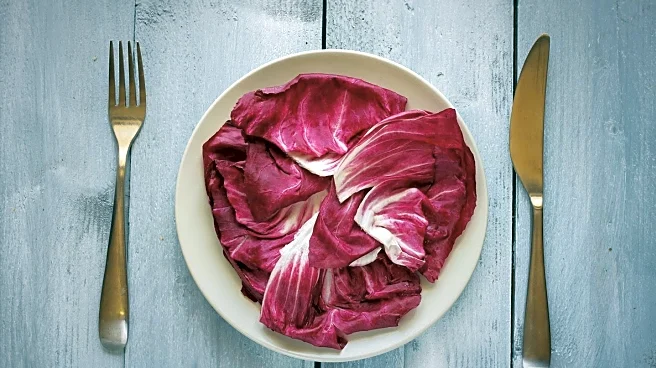What's Happening?
Gordana Radovic, a prominent Slow Food activist and champion of Herzegovina, has passed away. Known for her dedication to preserving the culinary traditions of Bosnia and Herzegovina, Radovic was a key
figure in the Slow Food movement in the Balkans. Her work involved connecting people through food and sharing the stories of local producers. Radovic was instrumental in organizing Terra Madre Balkans meetings and advocating for Balkan food in the European Parliament. Her sudden passing has left a void in the community, as she was widely recognized for her ability to unite people and promote the rich food culture of the region.
Why It's Important?
Radovic's contributions to the Slow Food movement have had a significant impact on the preservation and promotion of Balkan culinary traditions. Her efforts helped raise awareness about the importance of local food production and cultural heritage. By advocating for Balkan food in international forums, Radovic played a crucial role in elevating the region's food culture on a global stage. Her passing is a loss to the community, as she was a beloved figure who worked tirelessly to support small producers and maintain the unique flavors of Bosnia and Herzegovina. Her legacy will continue to inspire those who value food as a means of cultural expression and unity.
What's Next?
The Slow Food community and those who were touched by Radovic's work will likely continue her mission to preserve and promote Balkan food traditions. Efforts may be made to honor her legacy through initiatives that support local producers and celebrate the region's culinary heritage. The community may also seek to strengthen connections between Balkan countries through food, fostering unity and collaboration. As Radovic's influence extended beyond borders, her passing may inspire renewed commitment to the values she championed, ensuring that her vision for a united and culturally rich Balkans lives on.
Beyond the Headlines
Radovic's work highlights the ethical and cultural dimensions of food activism. Her dedication to preserving traditional food practices underscores the importance of cultural heritage in the face of globalization. By championing small producers, Radovic advocated for sustainable practices and the empowerment of local communities. Her approach to food as a unifying force offers a model for addressing cultural and political tensions, demonstrating how shared culinary traditions can foster understanding and cooperation. Her legacy serves as a reminder of the power of food to transcend boundaries and bring people together.











